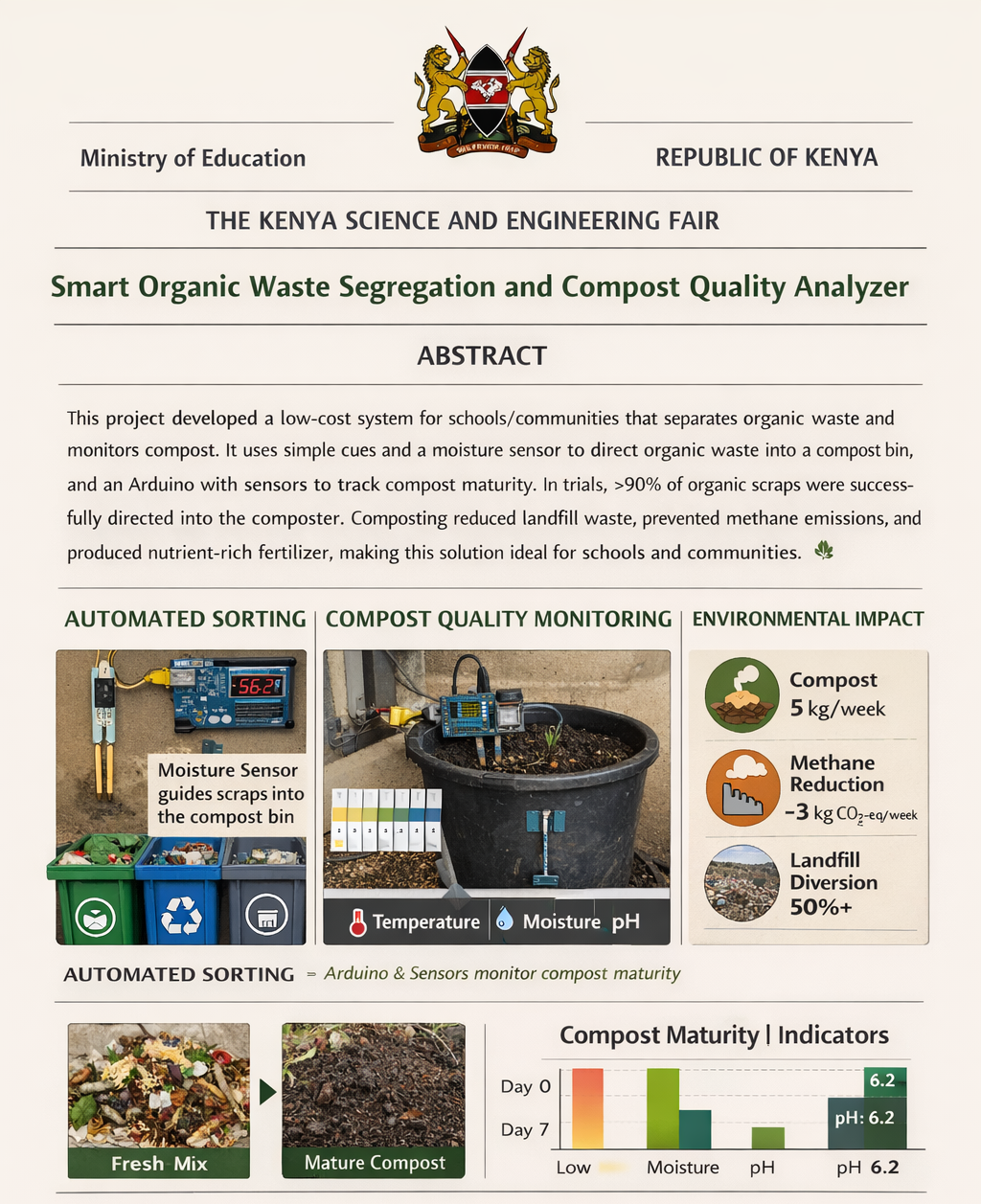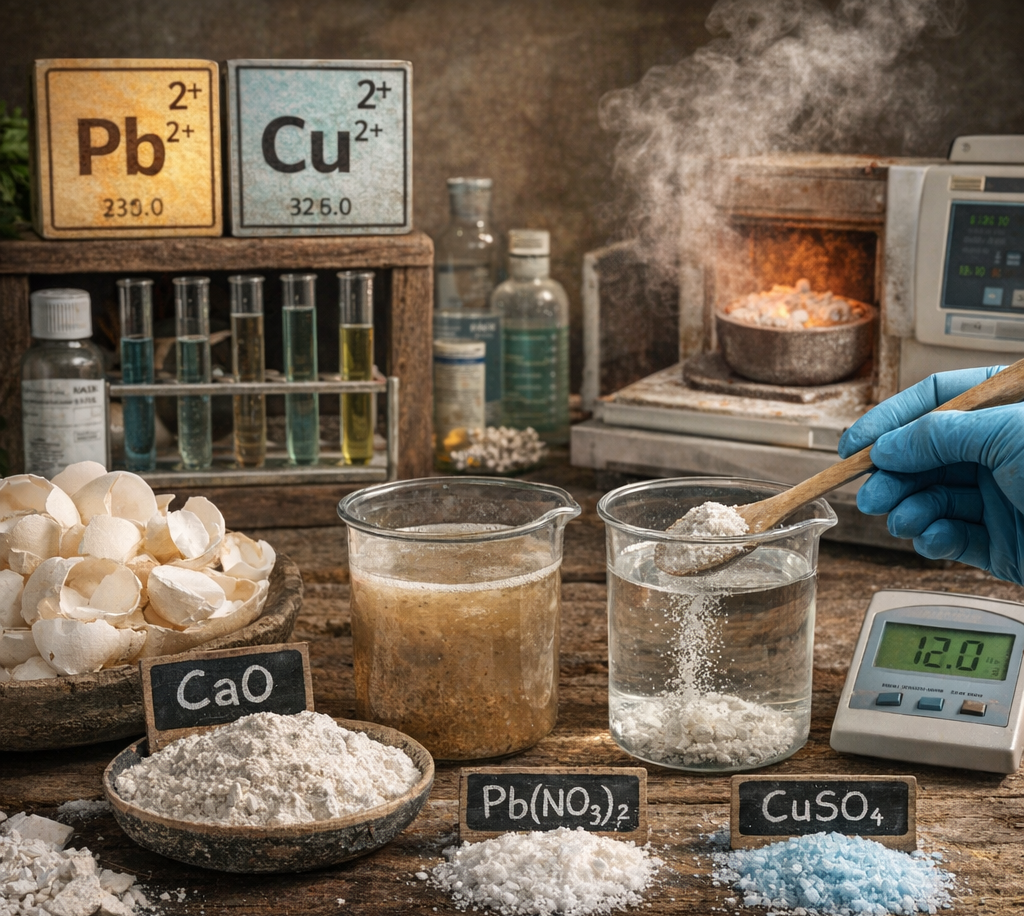Algae-Based Biofuel System: Harnessing Nature for Sustainable Transportation
1. Abstract
This project investigates the potential of algae-based biofuels as a renewable energy source for sustainable transportation. Algae, which can be cultivated in various environments, offer a promising solution due to their rapid growth rate and high lipid content, which can be converted into biodiesel. The project involves growing algae in a simple setup, extracting oils from the algae biomass, and transesterifying the oils into biodiesel. The findings suggest that algae-based biofuels could be a viable and environmentally friendly alternative to traditional fossil fuels, especially for transportation purposes.
2. Introduction
With the rising global demand for renewable energy and the need to address climate change, alternative energy sources have become crucial. Among these, algae-based biofuels have gained attention due to their potential to reduce dependency on fossil fuels and decrease carbon emissions. Algae offer several advantages, including fast growth, the ability to thrive in non-arable land, and high lipid content, making them an ideal candidate for biofuel production. This project explores the process of growing algae and converting them into biodiesel to demonstrate their feasibility for sustainable transportation.
3. Statement of the Problem
The transportation sector is a significant contributor to greenhouse gas emissions, heavily reliant on non-renewable fossil fuels. While biofuels have been proposed as a cleaner alternative, many current sources, such as corn and soybean, compete with food production and require large amounts of land. Algae-based biofuels, however, can be produced on non-arable land and do not directly compete with food crops. Despite their potential, challenges remain in optimizing algae growth, oil extraction, and biodiesel production processes to make them viable on a larger scale.
4. Objectives
The objectives of this project are:
- To design and implement a simple algae-based biofuel system, demonstrating algae cultivation and the conversion process into biodiesel.
- To evaluate the environmental sustainability of algae as a biofuel source for transportation.
- To determine the efficiency and yield of oil production from algae.
- To assess the quality of the biodiesel produced and its suitability for use in transportation.
5. Methodology
Materials:
- Algae Culture: Strains like Chlorella or Spirulina, known for their high lipid content.
- Growing Medium: A mix of water and nutrients (e.g., nitrogen, phosphorus, potassium) to support algae growth.
- Containers: Transparent containers (e.g., plastic bottles, glass tanks) for cultivating algae.
- Light Source: Fluorescent lights or natural sunlight to facilitate photosynthesis.
- Air Pump & CO2 Supply: To aerate the water and provide necessary carbon dioxide for algae growth.
- Harvesting Equipment: Filters or centrifuges to separate algae from the water.
- Oil Extraction Tools: Solvent extraction or mechanical pressing for lipid extraction.
- Transesterification Chemicals: Methanol and sodium hydroxide for converting oils into biodiesel.
Procedure:
- Algae Cultivation:
- Prepare the growth medium by mixing water and necessary fertilizers to create a nutrient-rich environment.
- Inoculate the medium with algae culture at a ratio of 1:1000.
- Maintain optimal growing conditions, such as adequate light, temperature (20-30°C), and aeration, for a period of 2–3 weeks.
- Monitor the algae’s growth and adjust conditions as necessary to ensure healthy development.
- Harvest the algae once the growth is dense, using filtration or centrifugation methods.
- Biofuel Production:
- Dry the harvested algae to remove excess water and prepare it for oil extraction.
- Extract oils from the algae biomass using solvent extraction or mechanical pressing methods.
- Perform the transesterification process by mixing the extracted oils with methanol and sodium hydroxide to convert them into biodiesel.
- Purify the biodiesel by washing it with water to remove residual chemicals and test its properties, such as viscosity, energy content, and combustion efficiency.
- Data Collection:
- Track algae growth rates, oil yields, and the quality of biodiesel produced.
- Evaluate the potential for algae-based biofuels as an alternative fuel for transportation by comparing the biodiesel’s properties to those of conventional fuels.
6. Variables
- Independent Variables:
- Type of algae species used (e.g., Chlorella, Spirulina).
- Light intensity and duration.
- Nutrient concentration in the growth medium.
- Temperature and aeration methods.
- Dependent Variables:
- Algae growth rate (biomass accumulation).
- Oil yield from algae biomass.
- Biodiesel quality (viscosity, energy content, combustion efficiency).
- Control Variables:
- Type of cultivation container (e.g., plastic bottles, glass tanks).
- Environmental conditions such as light intensity and temperature.
7. Conclusion
Algae-based biofuels have significant potential as a renewable energy source for sustainable transportation. This project successfully demonstrated a simple algae-based biofuel system, highlighting the potential benefits of algae cultivation and oil extraction. While challenges such as optimizing algae strains and scaling up production remain, algae-based biofuels can play a crucial role in reducing our reliance on fossil fuels, mitigating climate change, and providing a greener energy future for transportation. Further research and technological advancements are needed to improve the efficiency and cost-effectiveness of algae-based biofuel production




